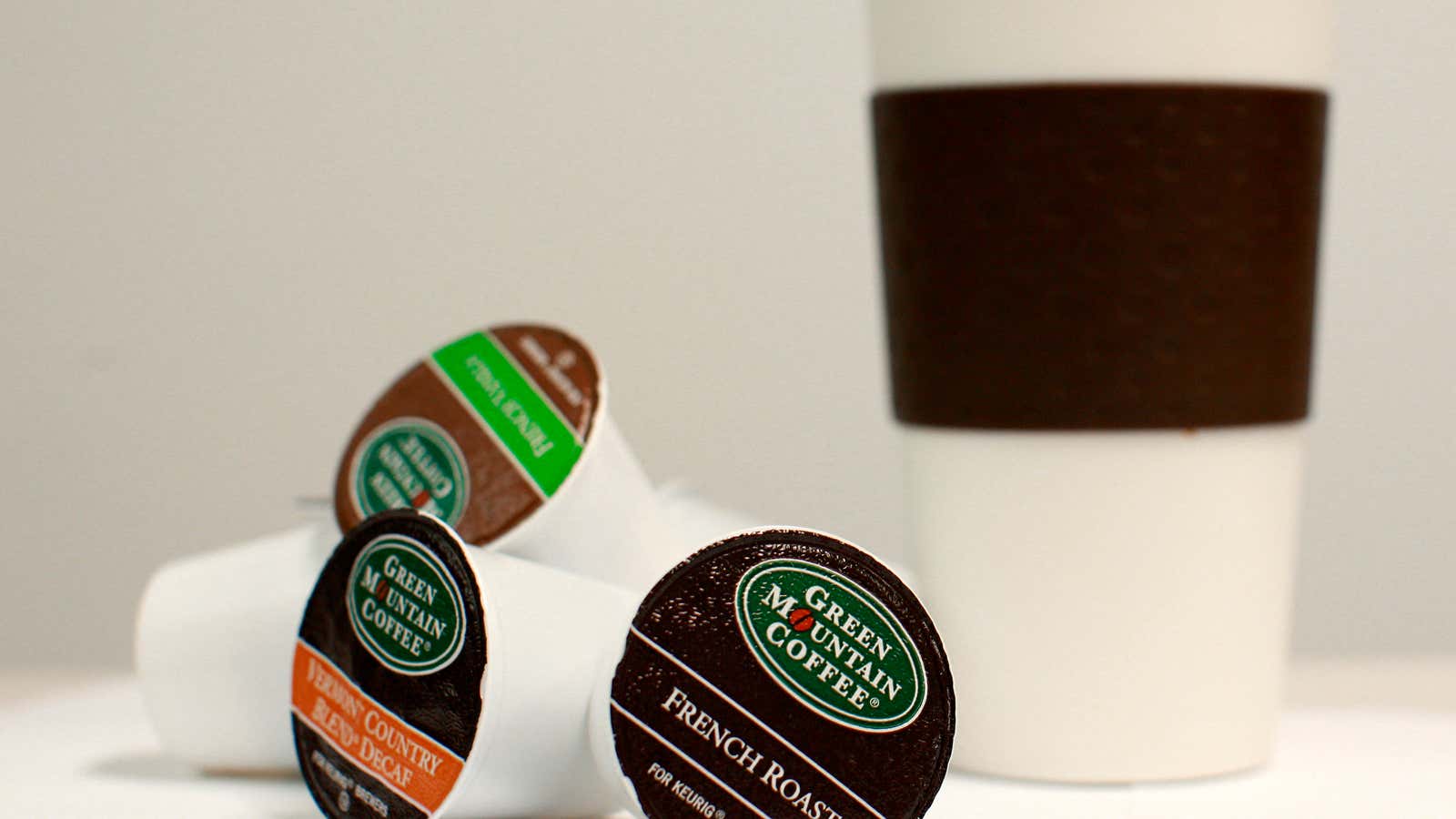“What else?” George Clooney asks after he’s finished being charming in the ads for Nespresso, the most well-known brand for small single-serving plastic or aluminum coffee pods. The German city of Hamburg certainly thinks there are other options.
Last month, Hamburg banned “certain polluting products” from state-run buildings. Singled out by the ban were coffee pods, which account for one out of eight coffees sold in the country, because the capsules can’t be recycled easily. ”With a purchasing power of several hundred millions of euros per annum, the city can help ensure that environmentally harmful products are purchased less frequently,” Jens Kerstan, the city’s senator for the environment, told the BBC this week.
In the US, roughly 13% of people drink a coffee made from a single-cup brewer every single day; the cups account for more than a quarter of ground-coffee sales. In 2013, pod-machines sales outpaced drip-coffee makers in Western Europe for the first time.
The city of Hamburg isn’t the only entity concerned with the environmental friendliness of coffee pods, though. Doubts about single-serving coffee pods—first sold by Nespresso in 1986 and now popular with consumers all over the globe, especially in the form of the Keurig K-Cup—are indeed being felt in other countries. In Britain, 10% of people said they believe the pods are “very bad for the environment,” according to a poll from supermarket trade magazine The Grocer—yet 22% of those people said they own a pod-coffee machine.
Even the man who invented the K-Cup has stopped using them, saying he “feels bad” about their environmental impact. Keurig, which dominates much of the market, doesn’t publicize how many K-Cups it makes and sells every year—but estimates say it may be enough to circle the Earth 12 times. Coffee-pod companies do often have sustainability programs, and Keurig has vowed to make all of its pods recyclable by 2020.
For those who want less harmful alternatives to the coffee capsule, though, it may be best to stick to mugs, thermoses, and disposable paper cups. More than two billion cups of coffee are drunk around the world every day in general—and a fair share of that currently results in un-recyclable waste. That’s certainly something to ponder when deciding how and where to get your next caffeine fix.




